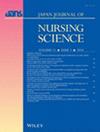The effectiveness of multimedia-based education on hypoglycemic events and associated factors in elderly individuals with type 2 diabetes
Abstract
Aim
To investigate the effectiveness of multimedia-based hypoglycemia education compared to conventional hypoglycemia education on knowledge, self-care behavior, fear of hypoglycemia, social support, quality of life, nursing hours, education satisfaction, and the recurrence rate of hypoglycemic events among elderly individuals with type 2 diabetes who have experienced hypoglycemic events.
Methods
A randomized controlled trial with a repeated-measures design was conducted on 82 elderly patients with type 2 diabetes who had experienced hypoglycemic events. Participants in the experimental group received multimedia-based hypoglycemia education, while those in the contrast group received lecture-based hypoglycemia education. Data were analyzed using descriptive statistics, chi-square tests, t-tests, and Generalized Estimating Equations (GEE).
Results
The experimental group showed significantly higher mean scores in hypoglycemia knowledge (p < .001), hypoglycemia self-care behavior (p = .034), and education satisfaction (p < .001). The nursing hours spent by the experimental group were significantly lower than those of the contrast group (p < .001). Within 6 months after receiving hypoglycemia education, the recurrence rate of hypoglycemic events decreased by 61% in the experimental group and 53.70% in the contrast group.
Conclusions
Multimedia-based hypoglycemia education can enhance knowledge and self-care behavior and reduce the recurrence rate of hypoglycemia among elderly patients with type 2 diabetes. Healthcare professionals can utilize multimedia education for hypoglycemia in elderly individuals with diabetes to improve their ability for home hypoglycemia care, thereby reducing the recurrence rate of hypoglycemic events.

 求助内容:
求助内容: 应助结果提醒方式:
应助结果提醒方式:


